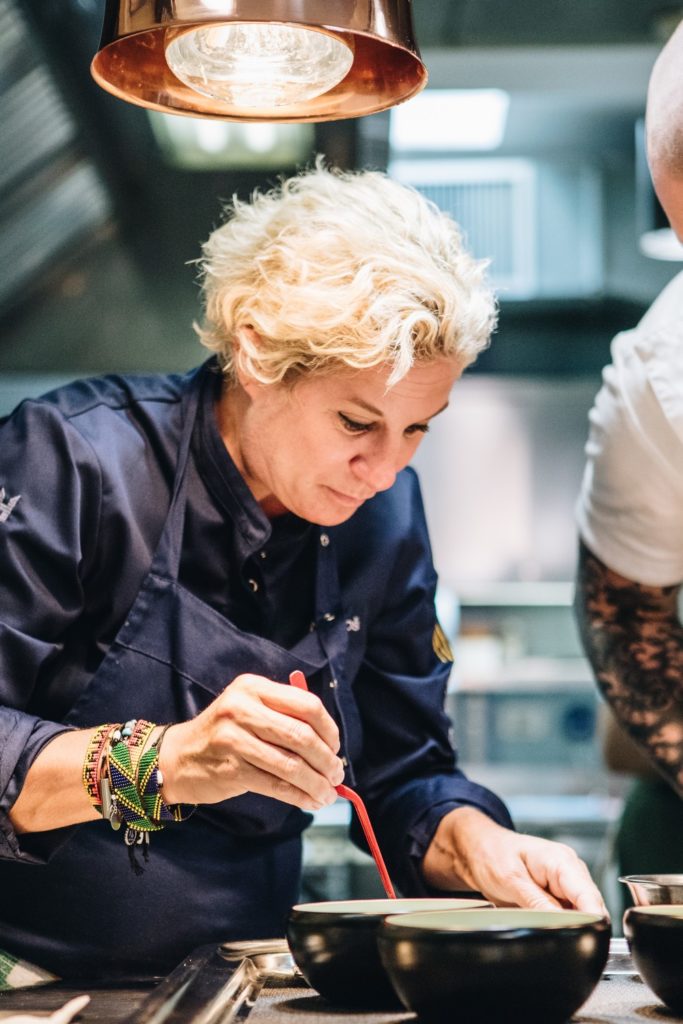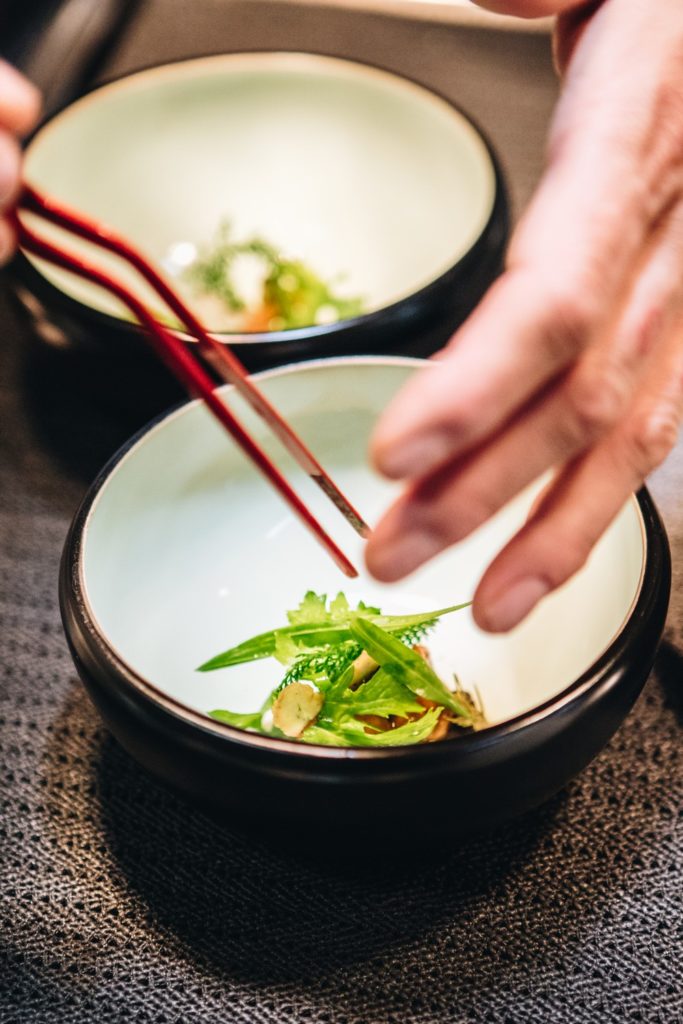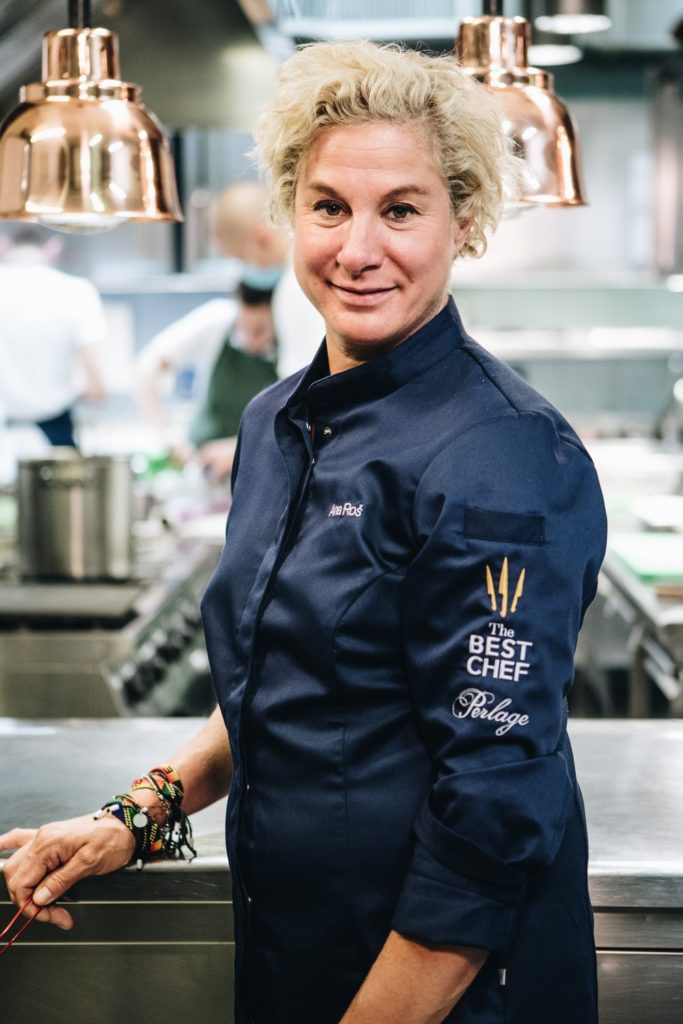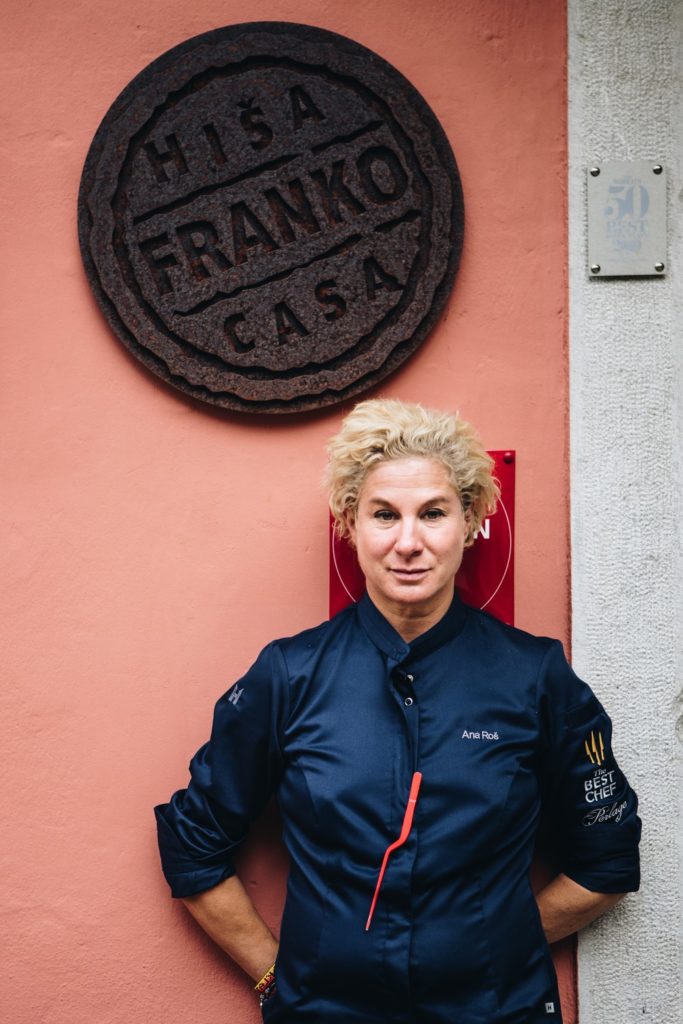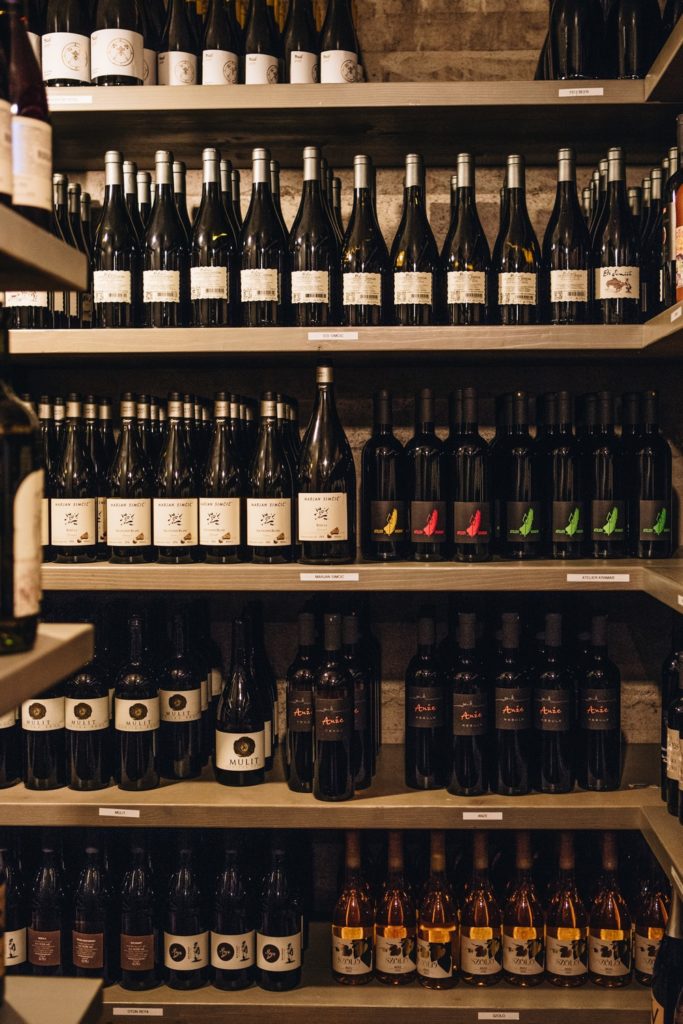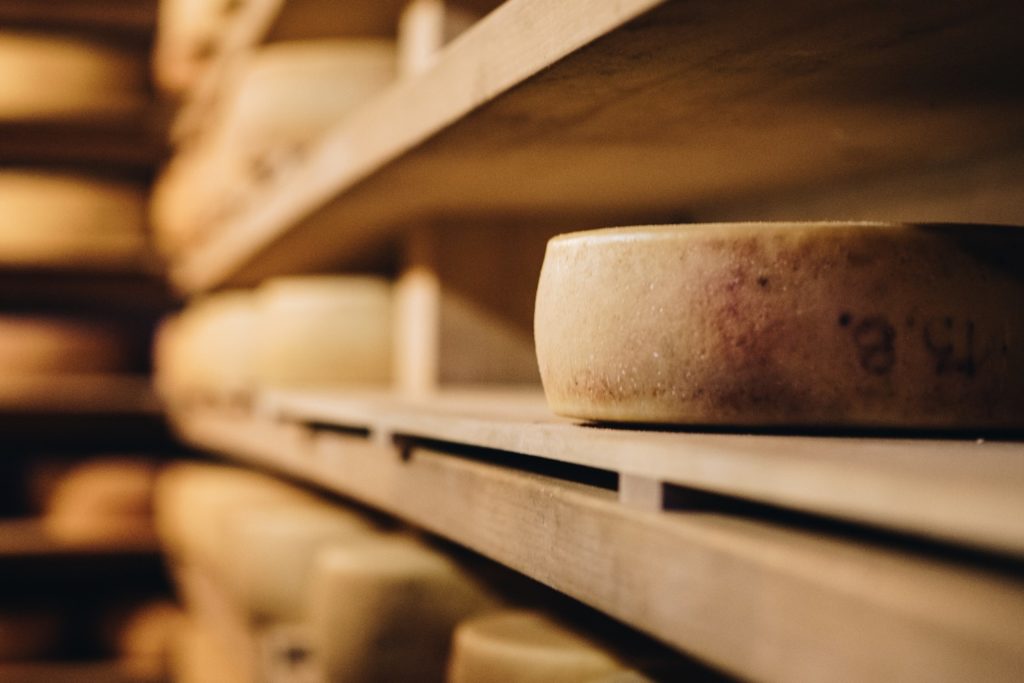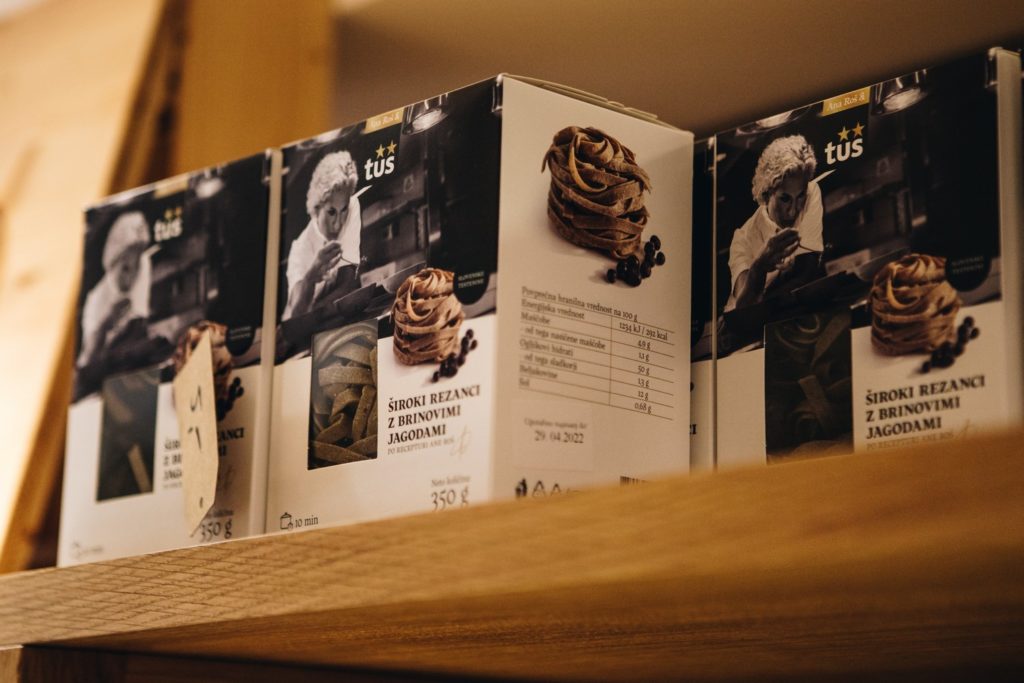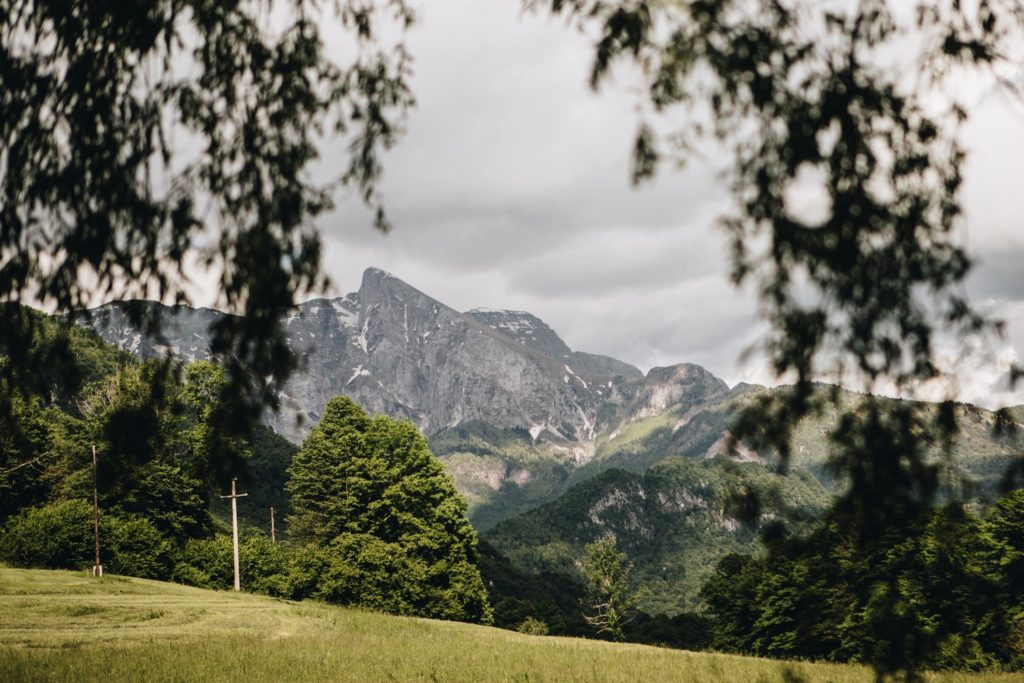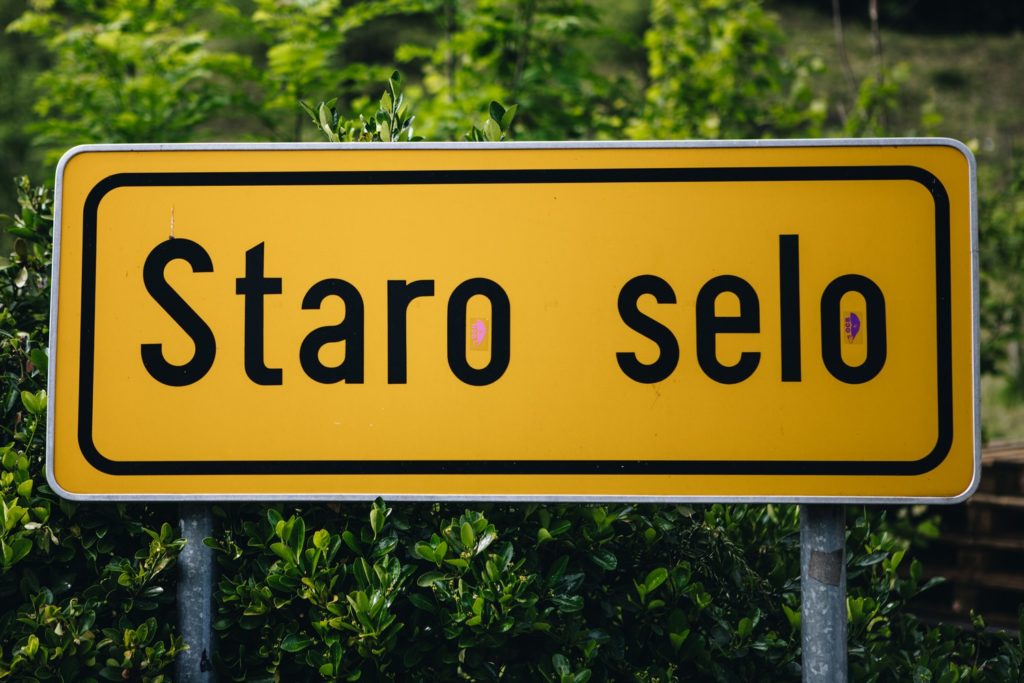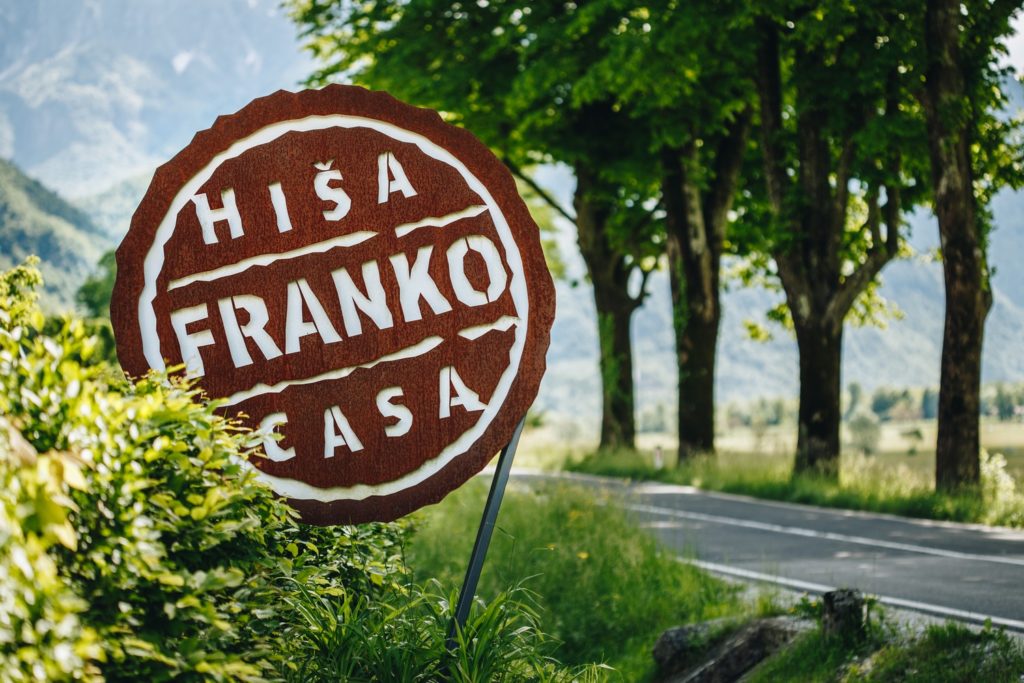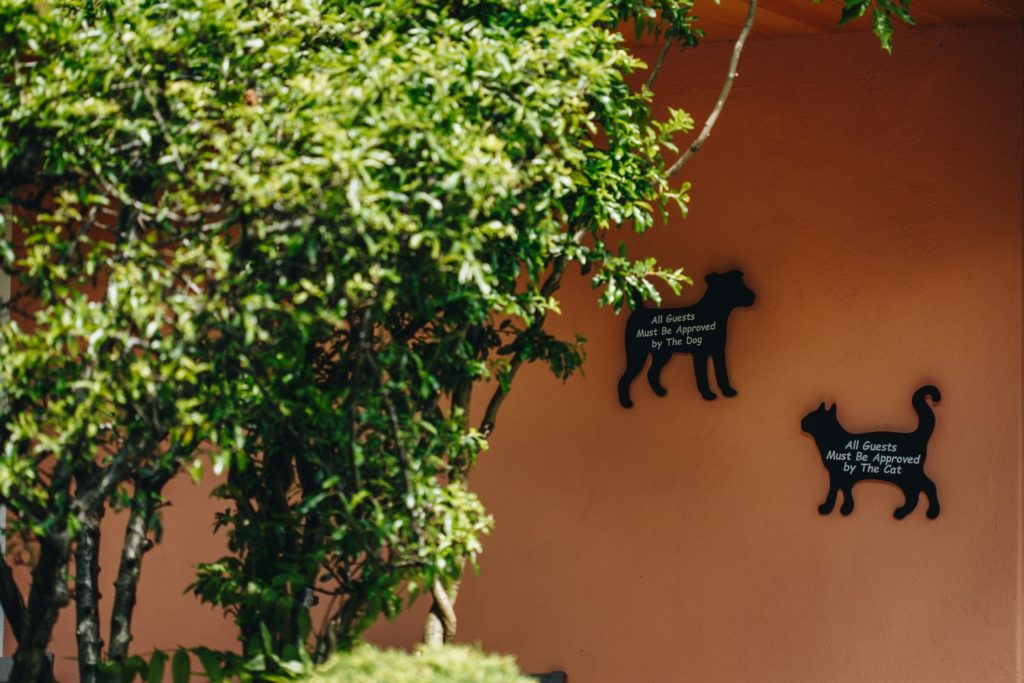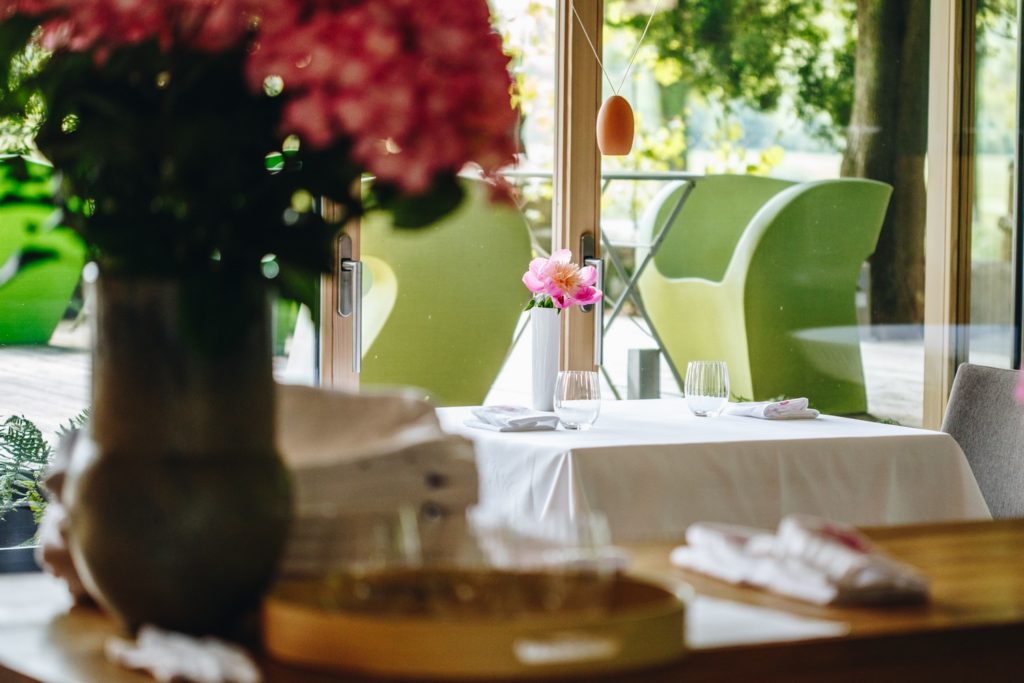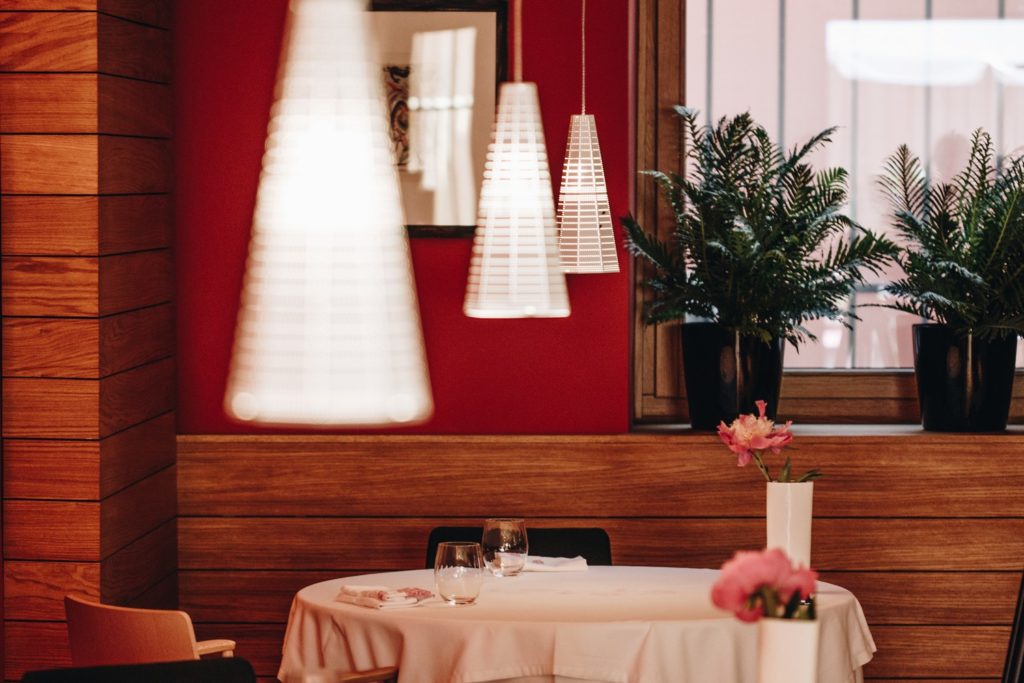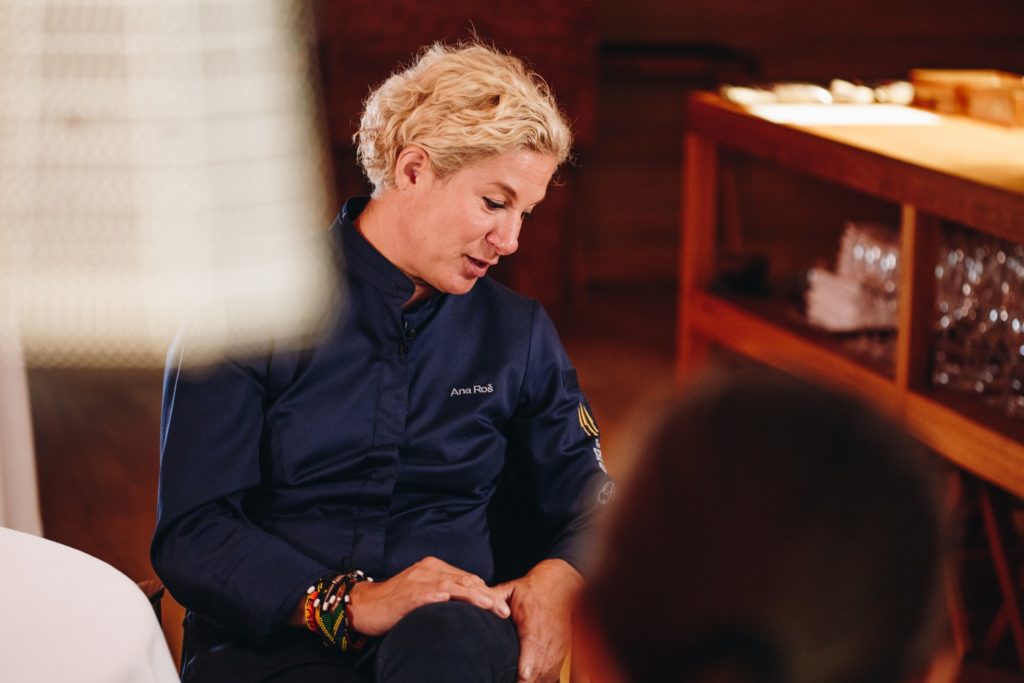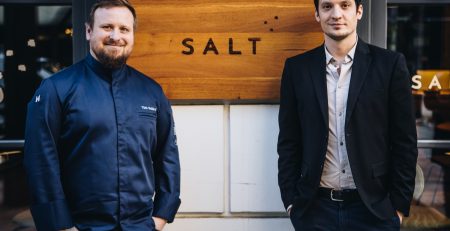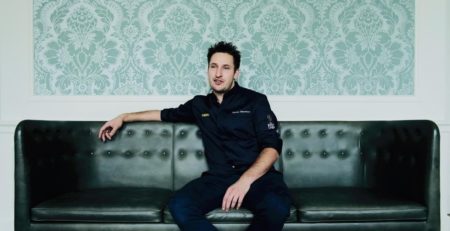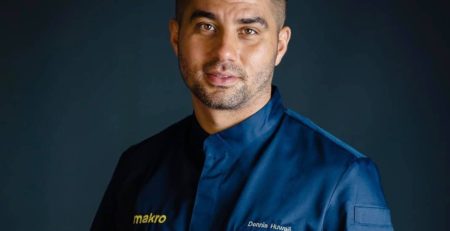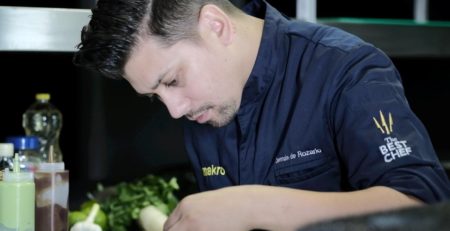Ana Roš – owner and chef at Hiša Franko Restaurant. She studied International Science and Diplomacy in Italy. She trained alpine skiing and earned a spot on Yugoslavia’s youth national team. Her adventure with cooking began in 2002, when she took over the role of chef at Hiša Franko.
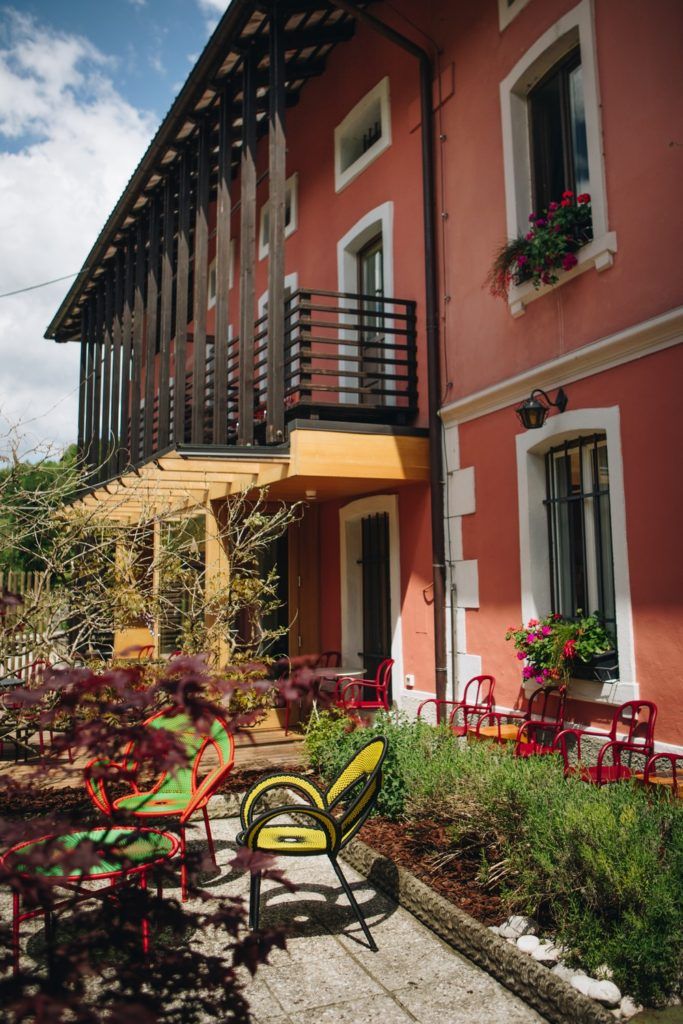

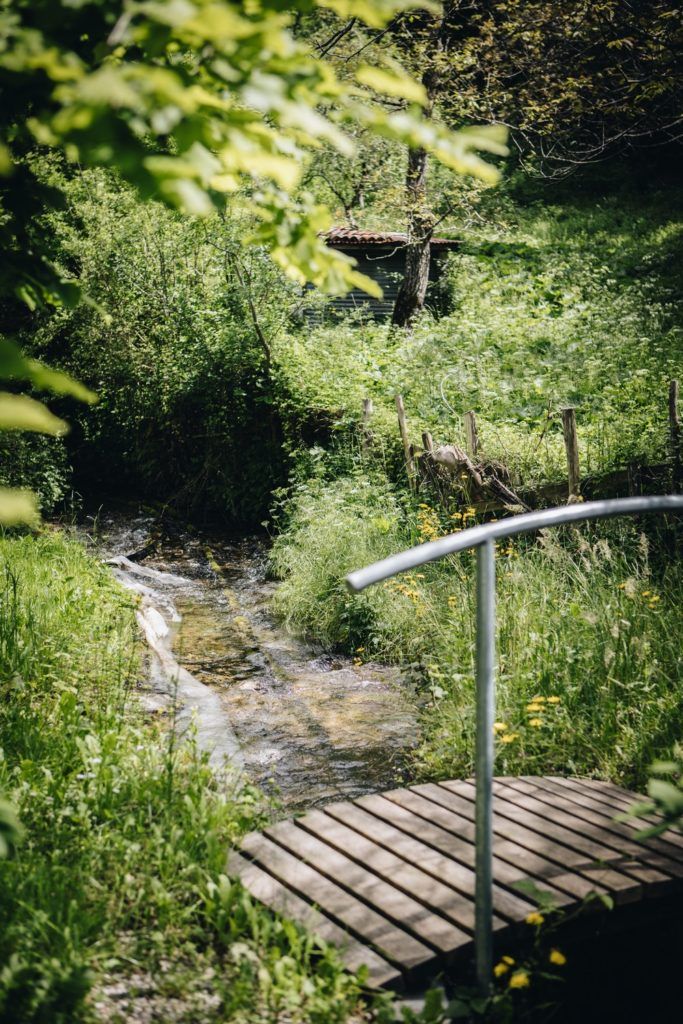
The Best Chef: Can you tell us something more about the story of this place? How did it all start?
Ana Roš: Hiša Franko is a restaurant that has a pretty long tradition. It’s an old countryside house. It’s from the 19th century and it has been everything like a farm house, a mill, a hospital during the First World War, a place where full of cows, horses, road-side restaurant, and then it has been abandoned. In the 70s. Valter’s parents bought it and invest into it to make it beautiful. That was the first generation of Hiša Franko or Gostilna Franko at that time. They had a very simple place where the whole valley was actually going to eat Kobariški štruklij a traditional dessert. In 2000, the second generation came over, which was Valter and me. We wanted to create a place where you could feel the local environment, where you could understand the faces behind the ingredients. It wasn’t easy because this is not a food destination and this wasn’t even a tourist destination, so a lot of people thought that were completely crazy starting a project like this without investors, without partners.
The Best Chef: When did you feel that cooking would become your way of life?
Ana Roš: I come from a family I speak often about that, which is a very ambitious family where, you know, my mum is a journalist, my father is a pneumologist, a doctor. Slovenia was not, and is still not, or is traditionally not a country with a fine dining history, which means that a chef or a cook is not one of the important roles in the country’s tradition, so you can imagine the tragedy of my parents. I mean, I was a brilliant student. I started International Science and Diplomacy in Italy. I speak a lot of languages and I was a kind of a brilliant daughter, amazing in sport, in national skiing, a dancer, belly dancer, contemporary dancer. I mean, I was whatever a parent can dream about it, and then the daughter comes one day and says, “Well, I just decided that I’m not going to take on a diplomatic career in Brussels” – which, by the way, is a tradition in the family – “and I will stay in the valley”.
That wasn’t really the easiest, and I think my father really didn’t speak to me for a long time. My grandmother had to come along and say: “Hey, but she’s an adult, she has the right to decide”.
I remember my conversation with the chef we had at the time and I said: “Let’s try to make, I don’t know, pear gnocchi in a fondue of a local cheese.” And he was like: “But how do you do pear gnocchi in a fondue of a local cheese?”, and I was like: “I don’t know, you are the cook”, and he was like: “But, somebody needs to show me”, and therefore that summer 2002 I opened that white door with a glass window in the kitchen and I said that I’ll do it.
I remember closing the door and then lining on the door and saying: “What did you do? What did you just do? Why did you said that?” And the first day I was in service, it went slowly at the beginning but it was very tough for the first ten years because I had to practically discover hot water every day, and we didn’t have money to have a team, or a brigade in the kitchen, and we couldn’t afford it so I was alone, me, my books. I started going to conferences, listening to my colleagues talking about their philosophies, their techniques, but I couldn’t even afford to stage because we could never, we were not capable of closing the restaurant now, because we needed money.
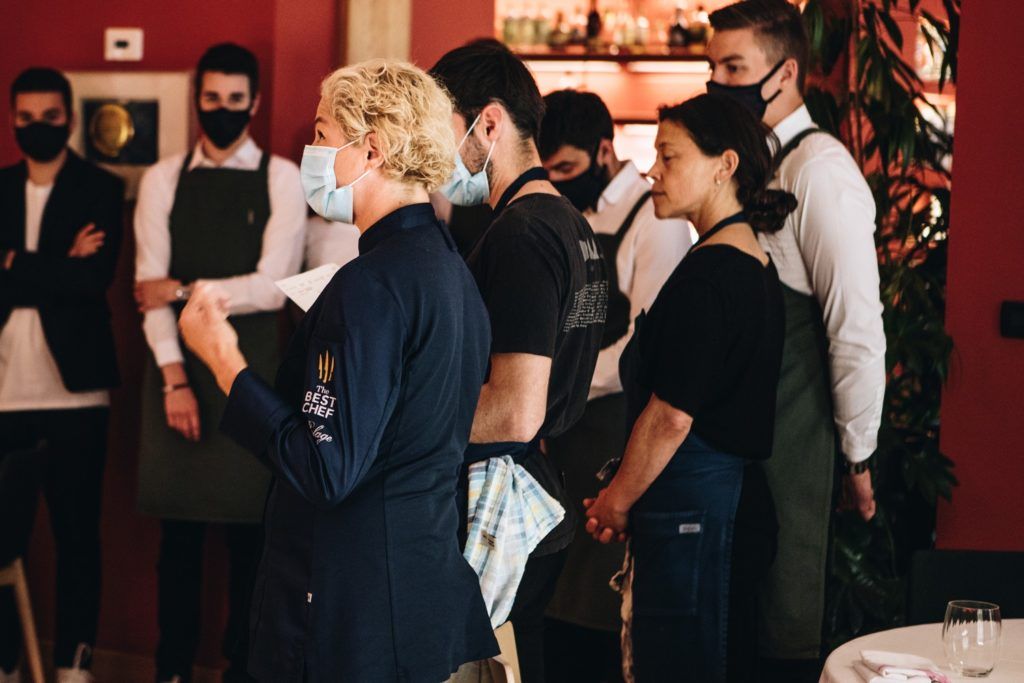
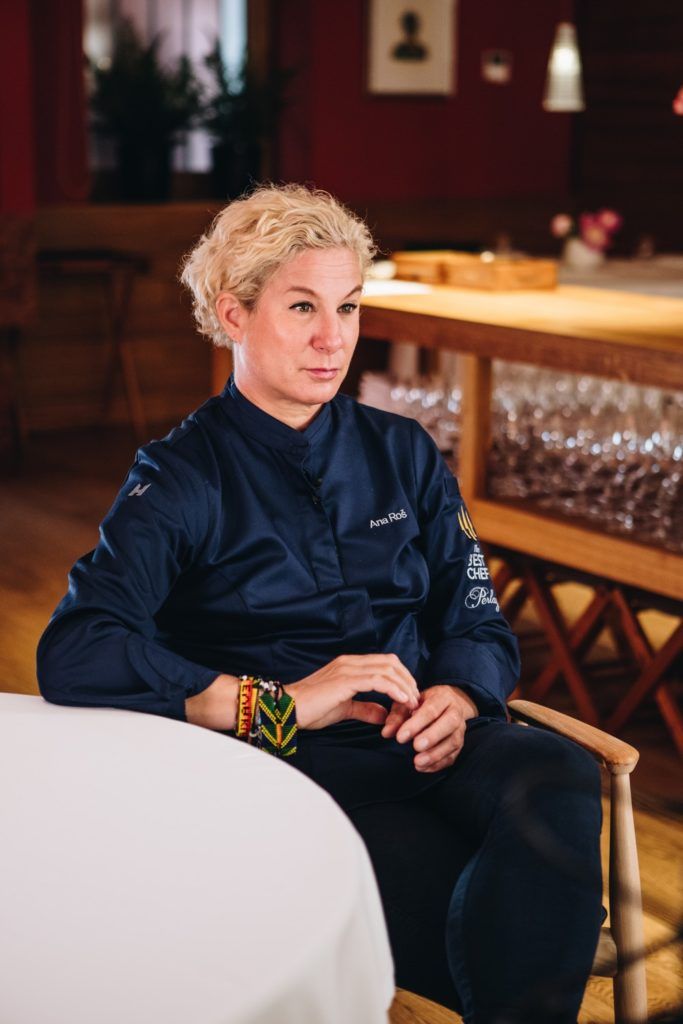
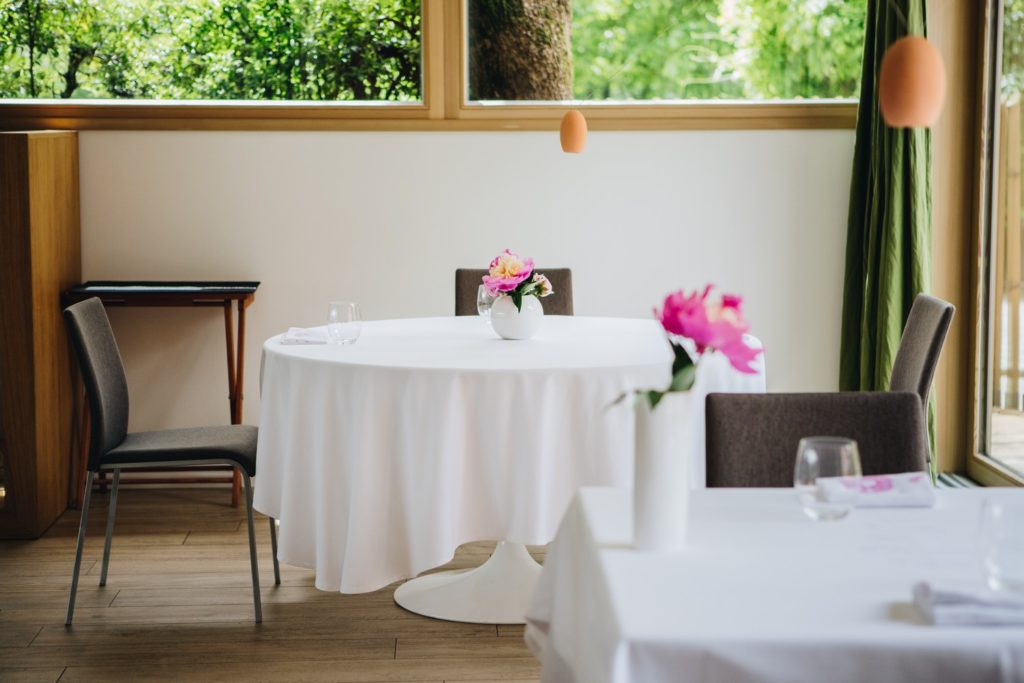
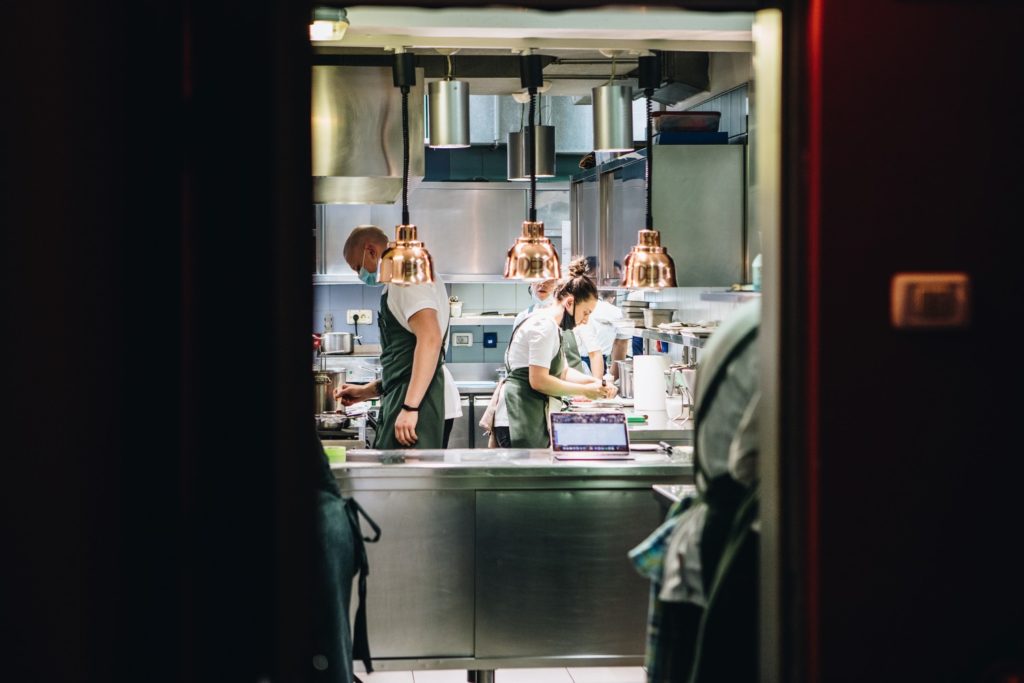
The Best Chef: What do you like the most in cooking?
Ana Roš: Well, I believe that cooking is a way to express yourself. You put a lot of emotions into cooking. You put your thinking of the moment, you put your respect to nature, to the season. You put into your cooking the respect for the faces, for the environment, for the traditions. I believe that cooking for me is like writing for a writer or like painting for a painter. I think that the ingredients, and colors and you know, if you give colors to different painters, they will apply them in a very different way. This is also how I see cooking. If you give me ingredients, I will probably put them together in a very different way compared to somebody else. You know, sometimes I see how deeply rooted cooking is in me because I dream about ingredients. I dream about the food. When I run, I’m observing what is going on in nature and trying to assemble the products together into something beautiful. I believe that cooking is not only the way I talk, the way I express myself, but it is precisely the way I am.
The Best Chef: What inspired you when you are cooking and inventing your dishes?
Ana Roš: I believe of course the nature and the season but I also believe that there is a very peculiar moment of nature that we all live in and for instance the menu of last year, the menu of two years ago, the menu of three years ago have nothing to do with the menu of this year. Every year, Hiša Franko steps into new shoes and it’s not because I want to change the concept, but it is because I change it that year. I had different experiences. I had… I’ve grown up for another year. I see the world with different eyes. Actually, I believe that time is one of the most important things; time passing by is one of the most important things in a chef’s creativity.
The Best Chef: What challenges women chefs have to deal with and how to bring more females to become chefs?
Ana Roš: Cooking or even doing the service is not the easiest work on the planet. It requires a lot of hours. It’s a way of living. It’s a philosophy of life, and I honestly think that woman, we are very multitask human beings. I mean, I often say I’m first a mother and then a cook. We are wives. We are housewives. This morning, before coming over, I had to clean the dishes because my children just forgot to. I had to do some washing for the clothes. I needed to clean the bathroom. I mean… I believe that our roles in life are many; there is not just the role of being a cook. I think for men, somehow, it is very different. I think man… when we say, a successful man always has a strong woman on his side, maybe for a woman, it is not so spontaneous sometimes, it is not so logical, and therefore we feel very guilty if we overwork and if we dedicate our life to work. A woman with a career is very often considered “a bitch” like as she is selfish and she, you know, doesn’t take care of her children enough. When my children went to High School this year, it actually happened that the school’s headmaster called me. I think Svit was in the second year of high school, and Eva Klara in the first one, and she said: “Well, I really have to share this with you. What amazing children you have. They are so good-hearted. They so social intelligent. They always help others”. She said: “I’m so surprised”. And I was like: “Really, why are you surprised?” And she was like: “Well, you know, we know how much you work”. And I was like, “You see, automatically because I work so much, you thought that I will have some spoiled children without any education.” So, I believe that the whole situation of considering the role of a woman in a society will have to change before we have a higher number of female chefs. I also was living my whole last fifteen years with a big sense of guilt, because I was never enough. I wasn’t enough in the kitchen. I wasn’t enough with the children. I wasn’t a perfect wife. I wasn’t a good housewife. I was always missing somewhere. So, I believe that the whole role of a woman in our traditional European society will have to change before we will reach the same number of men and women in the kitchen. On the other side, I have to say that the new generation that is coming doesn’t have this sense of guilt anymore. I see the quote of girls in the kitchen in Hiša Franko is almost the same as boys and these girls are really, really not only as strong as cooks, but also very strong-minded about what they want in their life and what their life is going to be. They are these who are the architects of their life and they don’t mind or give a shit about what others think.
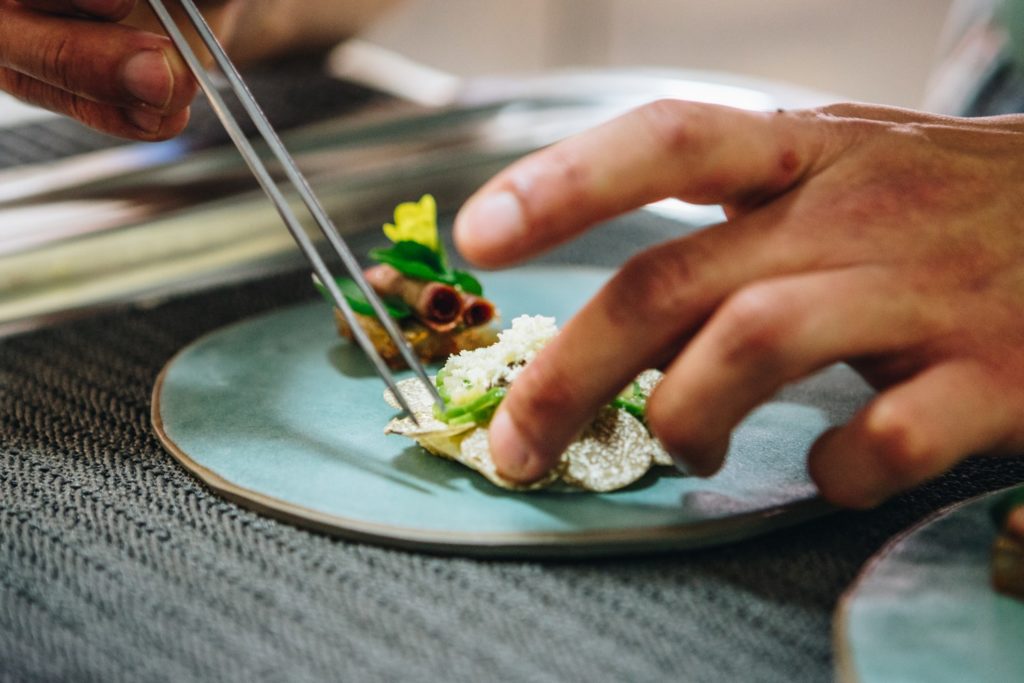
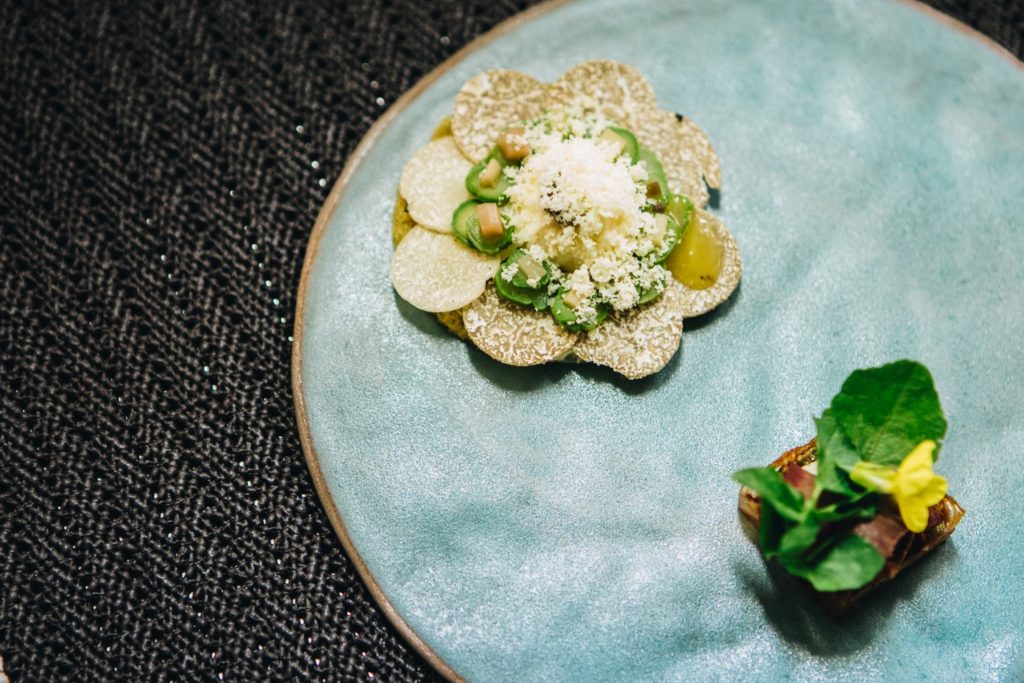
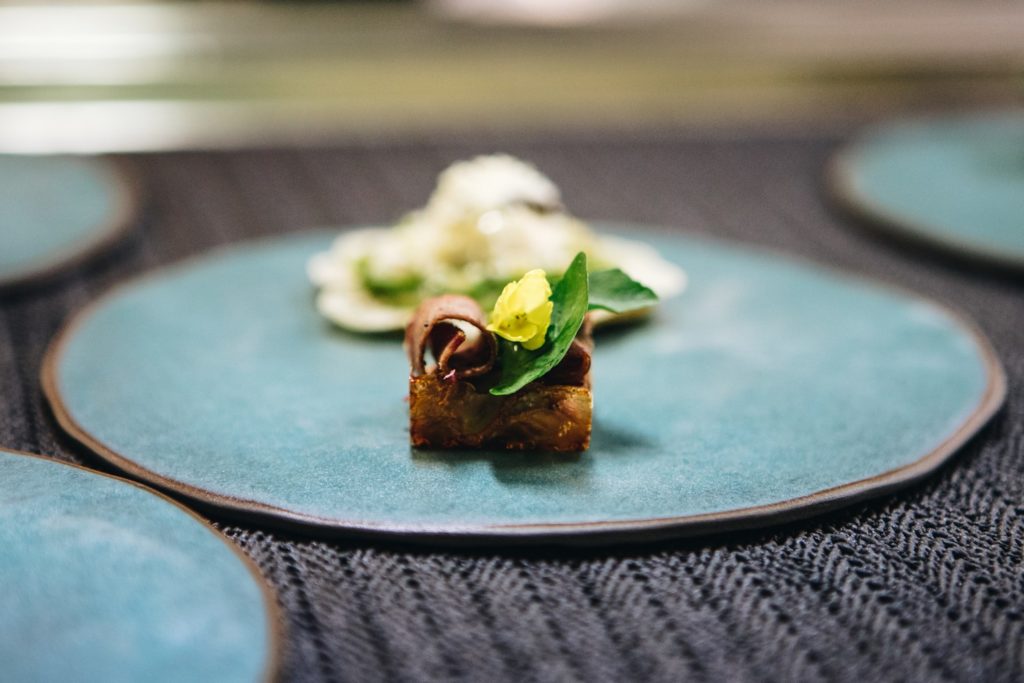
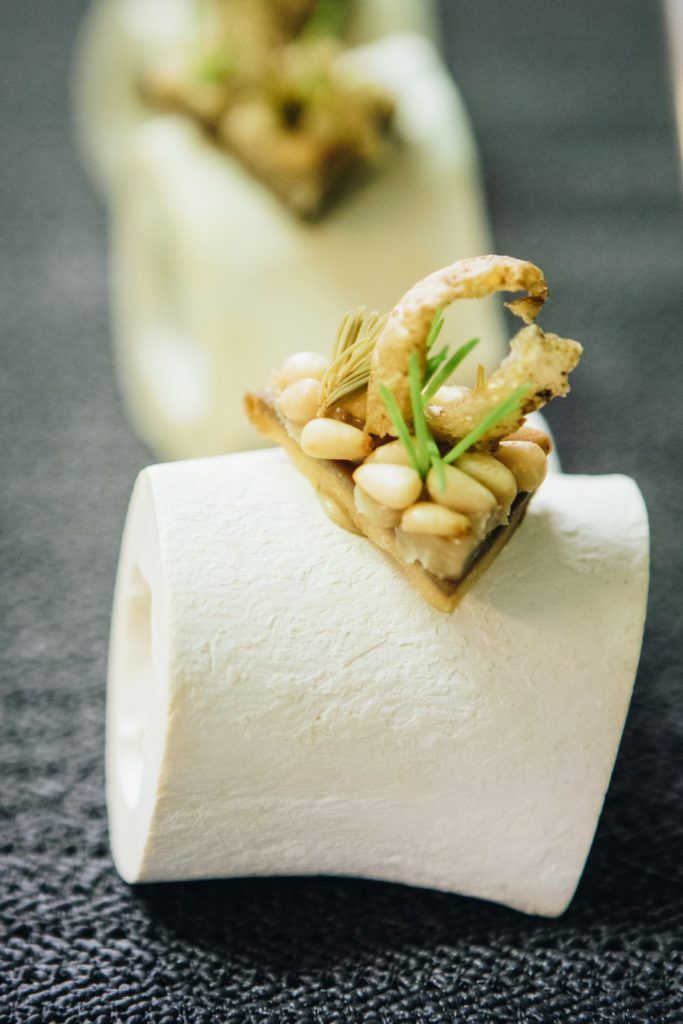
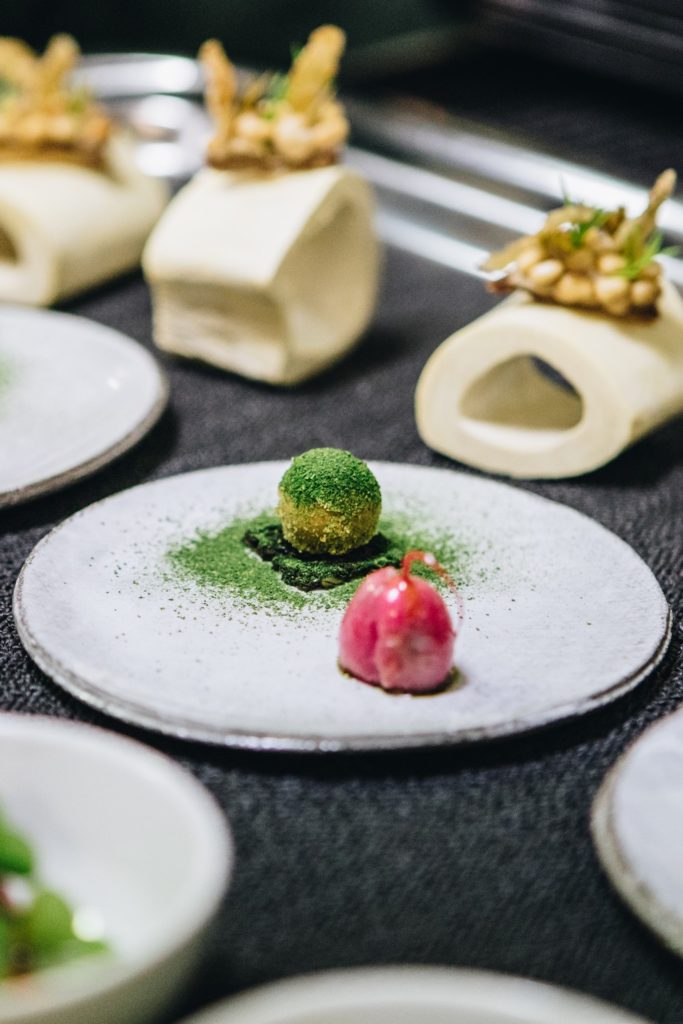
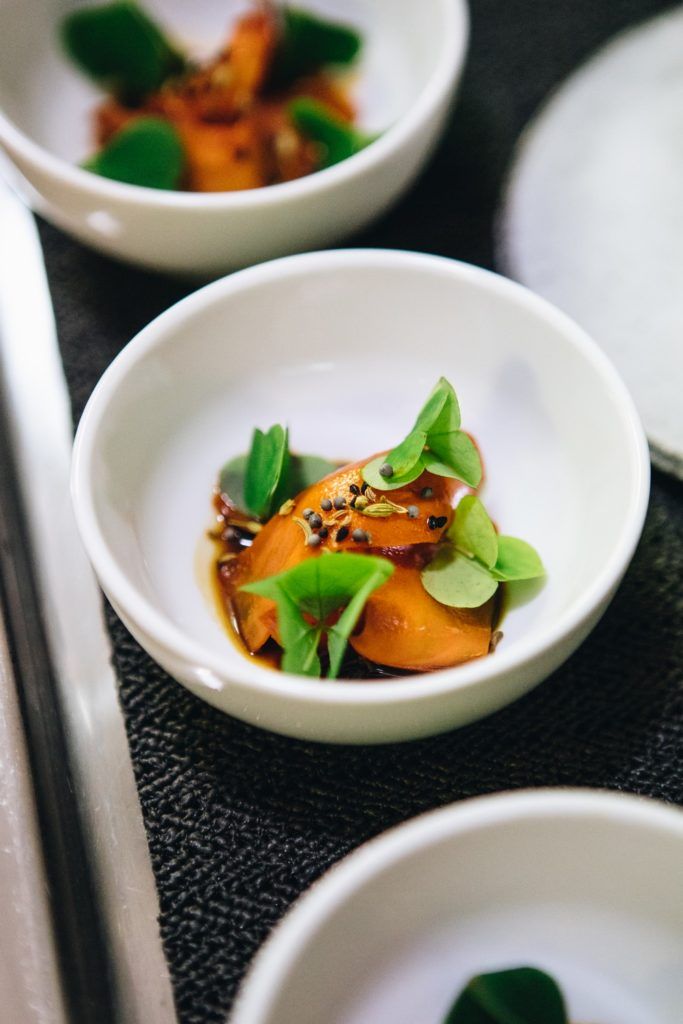
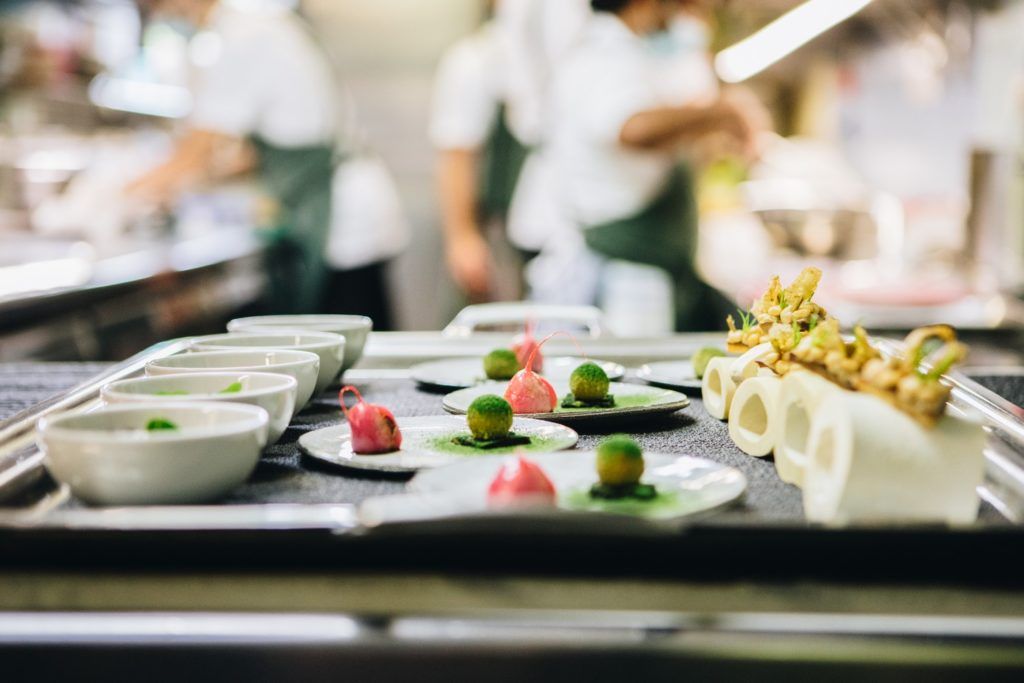
The Best Chef: What kind of advice did you give to young female chefs especially?
Ana Roš: I believe that one the most important things is that girls, and not only girls even boys, young people who dream about becoming a cook, have to understand that you have to focus, and this focus is not only for tomorrow but it is in years advance because, sooner or later, you will understand that this is a difficult job but it is really rewarding. You have to be focused on the happiness you will rich one day, you have to follow your head, realise your dreams and be prepared to understand that if there is a problem, you have to analyze it and then resolved it, do not break down when you encounter the first problem because it will come sooner or later, and this is a hard profession where sometimes I can see people’s motivation going down very, very quickly because they think they are not releasing themselves. It takes time.
The Best Chef: What are your plans for the future?
Ana Roš: We are opening a bakery which hopefully is gonna became a chain of bakeries in Ljubljana in December. I would like to help our environment to understand the importance of the quality of gastronomy in general; how important it is to eat well. I think my country deserves it. We already started doing it during lockdown with a huge project “Saving Slovenian Farmers” with the biggest Slovenian, 100% Slovenian chain of supermarkets, where we launched more than sixty products, helping farmers to save their production. We have been super successful in the tiny Slovenia. Up to now, I think we sold more than three hundred thousand pieces, and we saved, we practically saved so many faces already and, you know, that happened without projecting or architecting it. We were in a situation where the lockdown happened. My forty people didn’t know what’s gonna be in the future. The farmers starting calling that they are broke because they are just throwing away ten thousand of litters of milk, cottage cheese, lambs, vegetables. Everything has been blocked. I could never even dream about launching a project like that. This precise project is now helping Hiša Franko’s team to have a proper life financially because the times are really not easy. So, I never planned it; therefore, I don’t want to plan anything else, I know the Bakery we are looking forward together with my head chef Leonardo and my baker Nataša. We would like to give to the Slovenians the best bread in the world and then we will see what happens next.

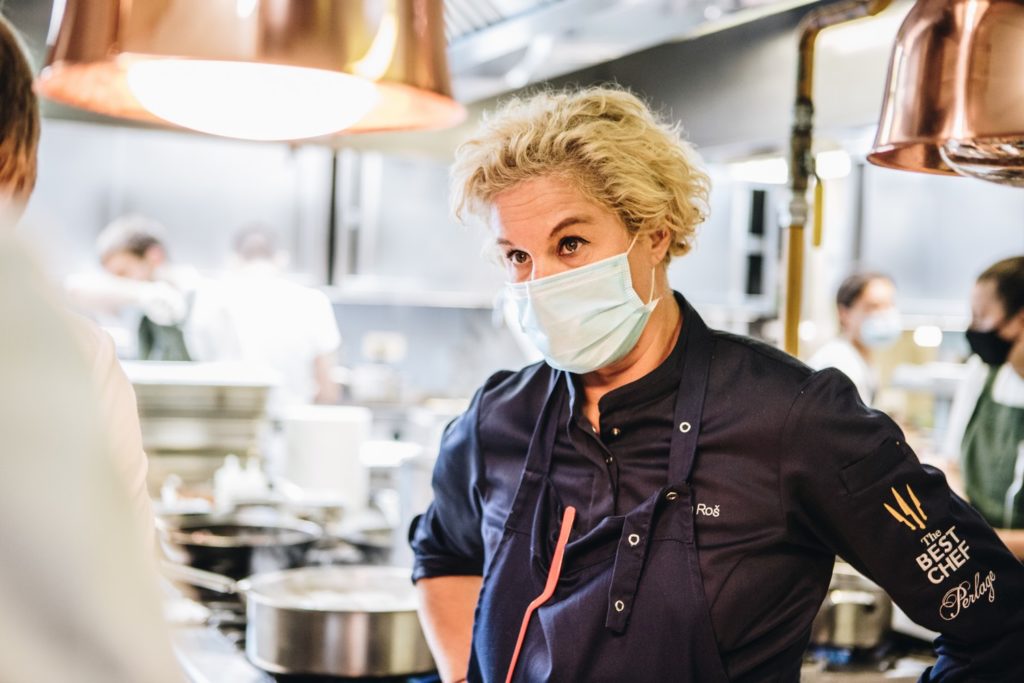
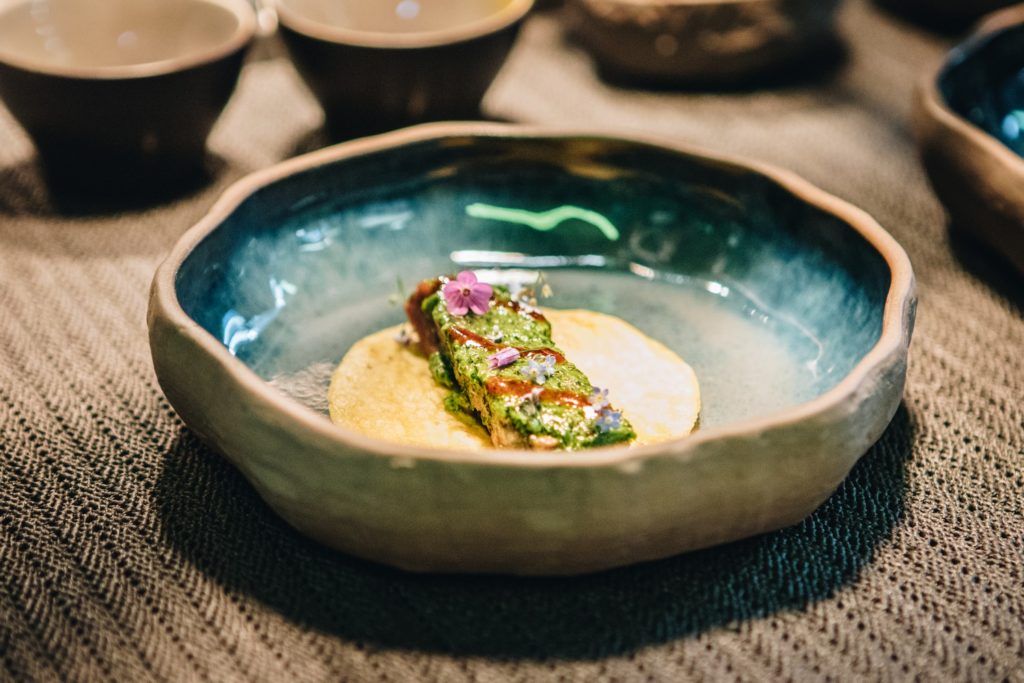
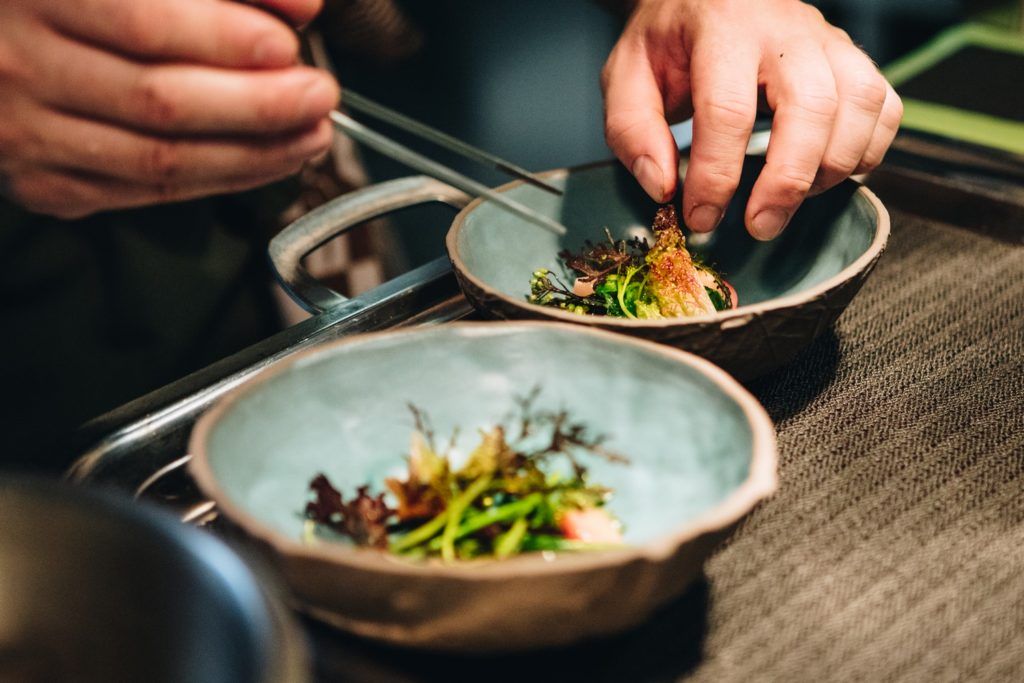
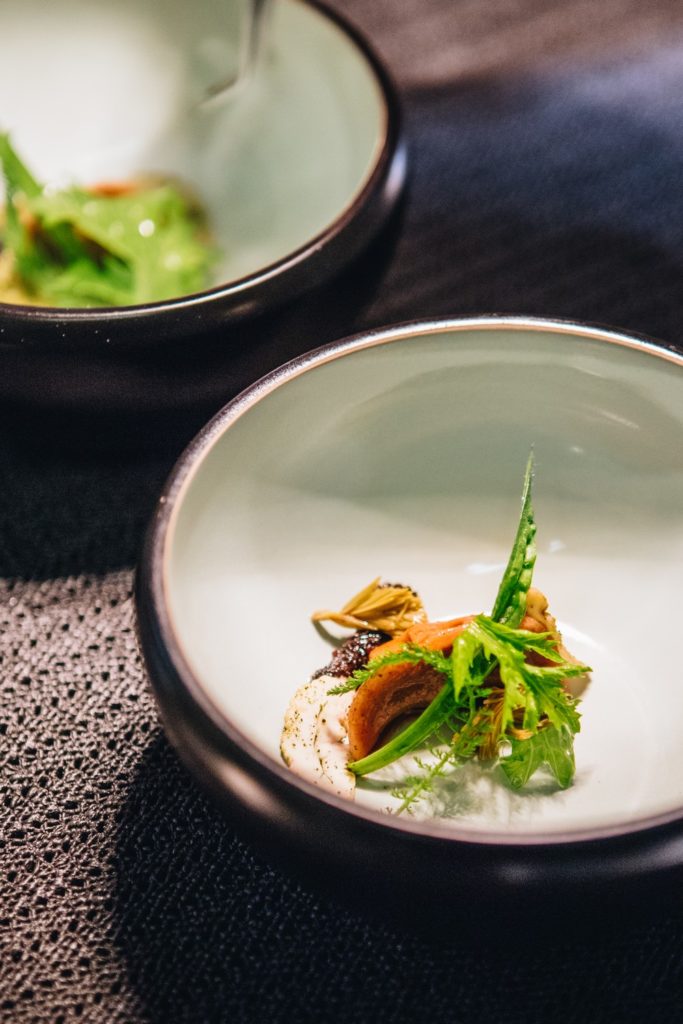
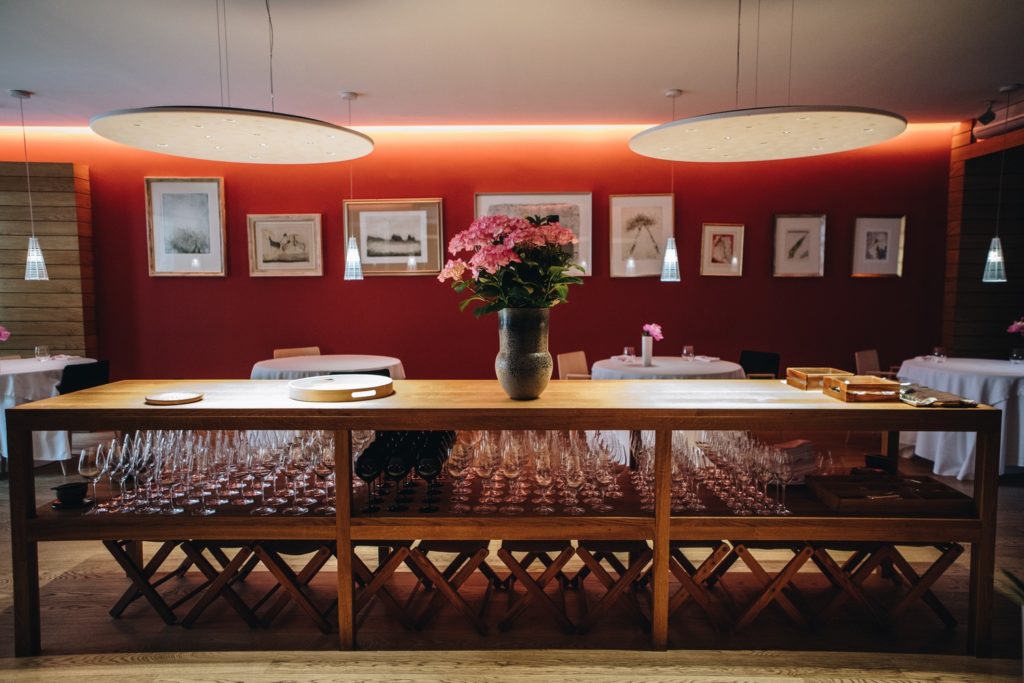
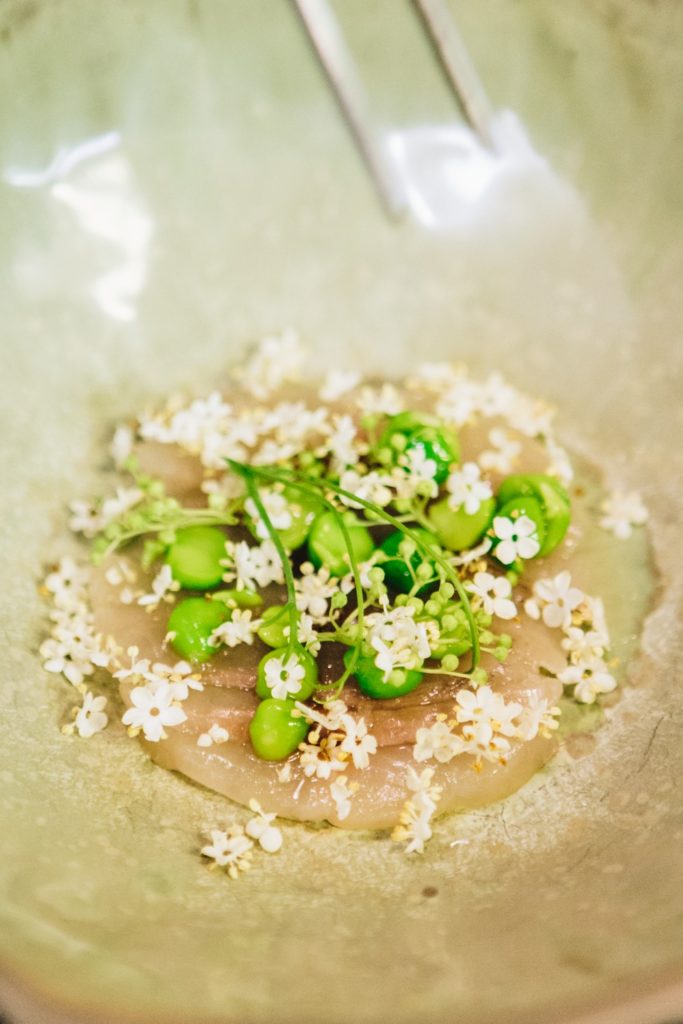
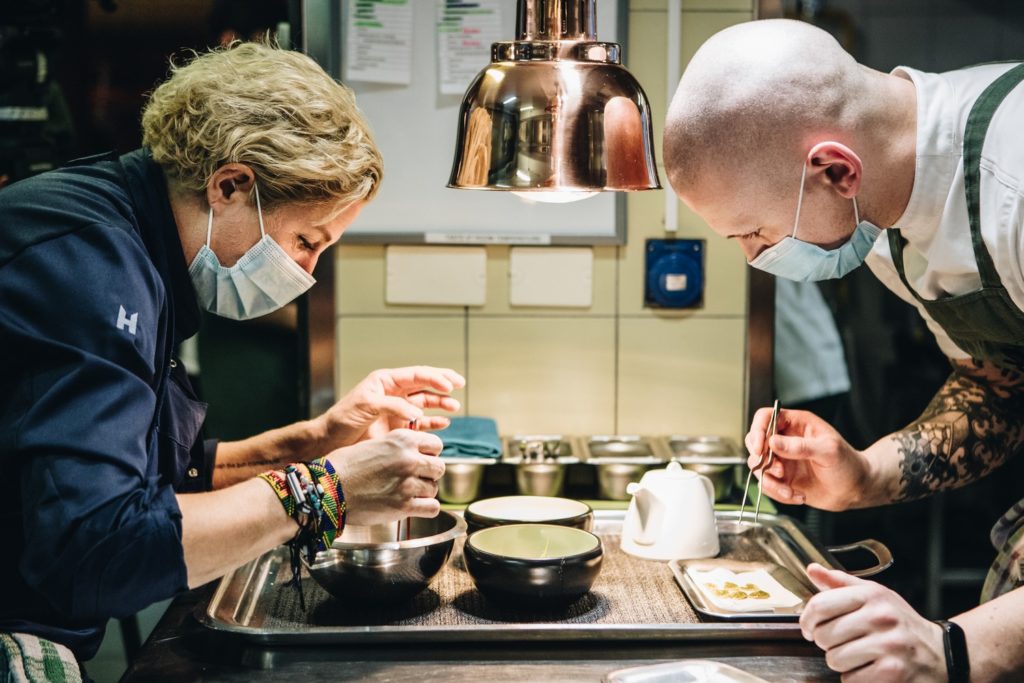
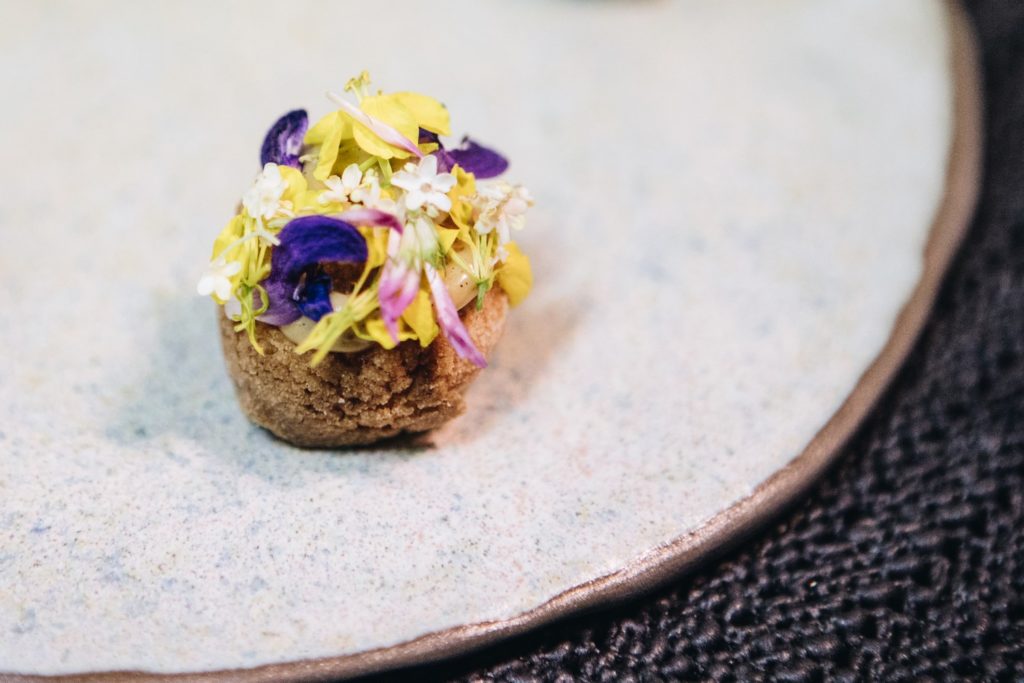
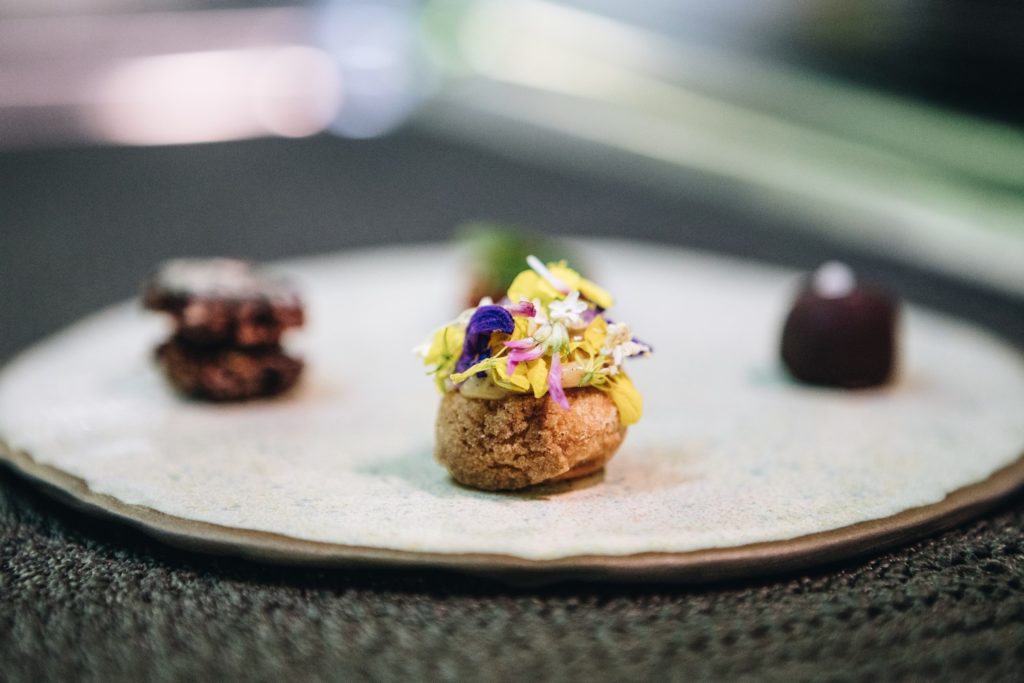
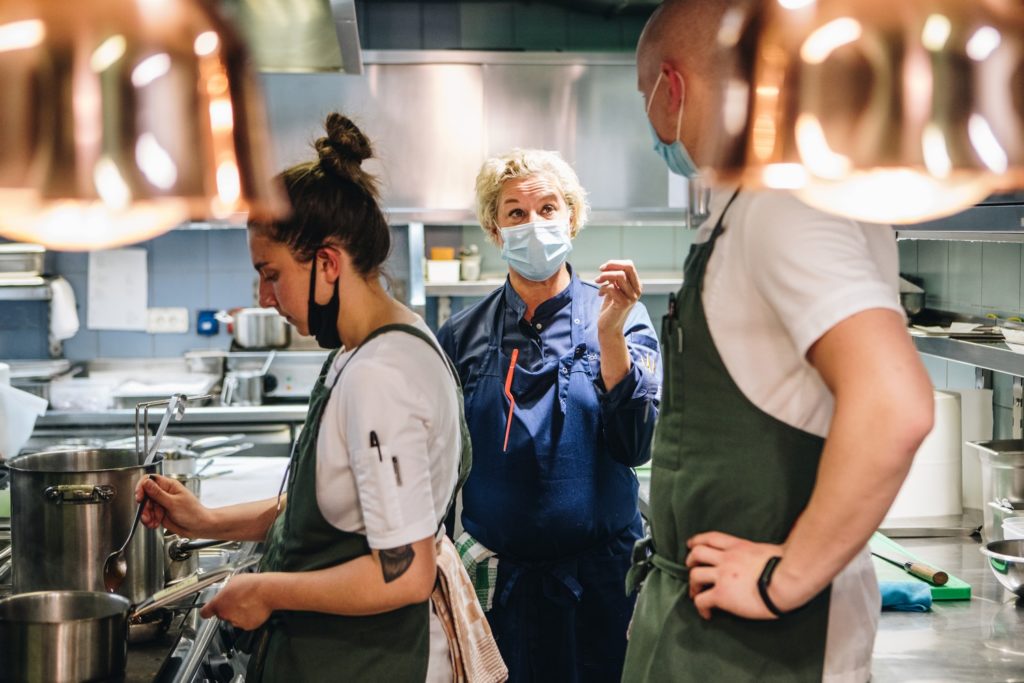
The Best Chef: You are an icon in Slovenia and you represent Slovenia worldwide. Do you feel any responsibility?
Ana Roš: You know Slovenians have this love-hate relationship towards me, so I’m actually the one who is also a social critic and I believe that you know when opinionated people who have power over the world should be defending the quality or the proper thinking of the country. When I said this love-hate relationship, it means I walk in the street of Ljubljana and people are stopping me and saying: “Chef! We love you so much.” But then under every interview that I release there are so many negative comments, because people still don’t understand the role of a chef. They still think that we just play the luxury life here, which is absolutely not true, because fine dining in the countryside is actually, as I told you before, a big economic responsibility towards the countryside, as well as a social one, but this kind of restaurants are never a source of richness, especially when you work without investors and partners. I’m sometimes super scared of talking about the success of Hiša Franko in the Slovenian interviews because I raise a kind of hatred, as sometimes it looks like we should be ashamed of successful stories, but then, on the other side, you know, you walk on the streets of Ljubljana and a young guy stops on his bicycles and hugs you, saying: “I love you so much and thank you for what you doing.” And then, you know, you understand that it’s worth it for that hug, and maybe when you see a smiling farmer who made it because you made it happened, then you see the value of the whole story.
The Best Chef: Last year was very difficult for foodservice and fine dining. What do you think will change in fine dining and what people learned from this situation?
Ana Roš: People have been on lockdown almost a year now, people couldn’t go to the cinema, couldn’t go to the theatre, bar, cocktail bar, restaurant, and people are social beings, we are born to socialize. I believe that, at the moment, we can we will be looking after an amazing experience in a cinema, in a theatre, in a restaurant, and if you ask me what I learn about it, how important hospitality really is. I believe that my responsibility in this moment is even bigger than before because people are begging to be well, to feel well, to eat well, to drink well. Just to enjoy their life, and I honestly believe that the responsibility of a chef, of a bartender or a sommelier has never been bigger than now, and I don’t want Hiša Franko to change. I don’t want Hiša Franko to become simpler. You know somebody said to me, a Slovenian journalist was like: “Finally, they will start cooking simpler courses, because people will not want to seat at the table anymore.” It is not so, we proved in the first days of the services how grateful people are for every little gesture that we are doing, and you will see that the importance of the restaurant has grown to the level of maybe how it was after the Second World War, when people really, really needed and wanted good things for them. So I hope I’m right. I believe I’m right and I believe that the first two services we did proved that I’m right.
